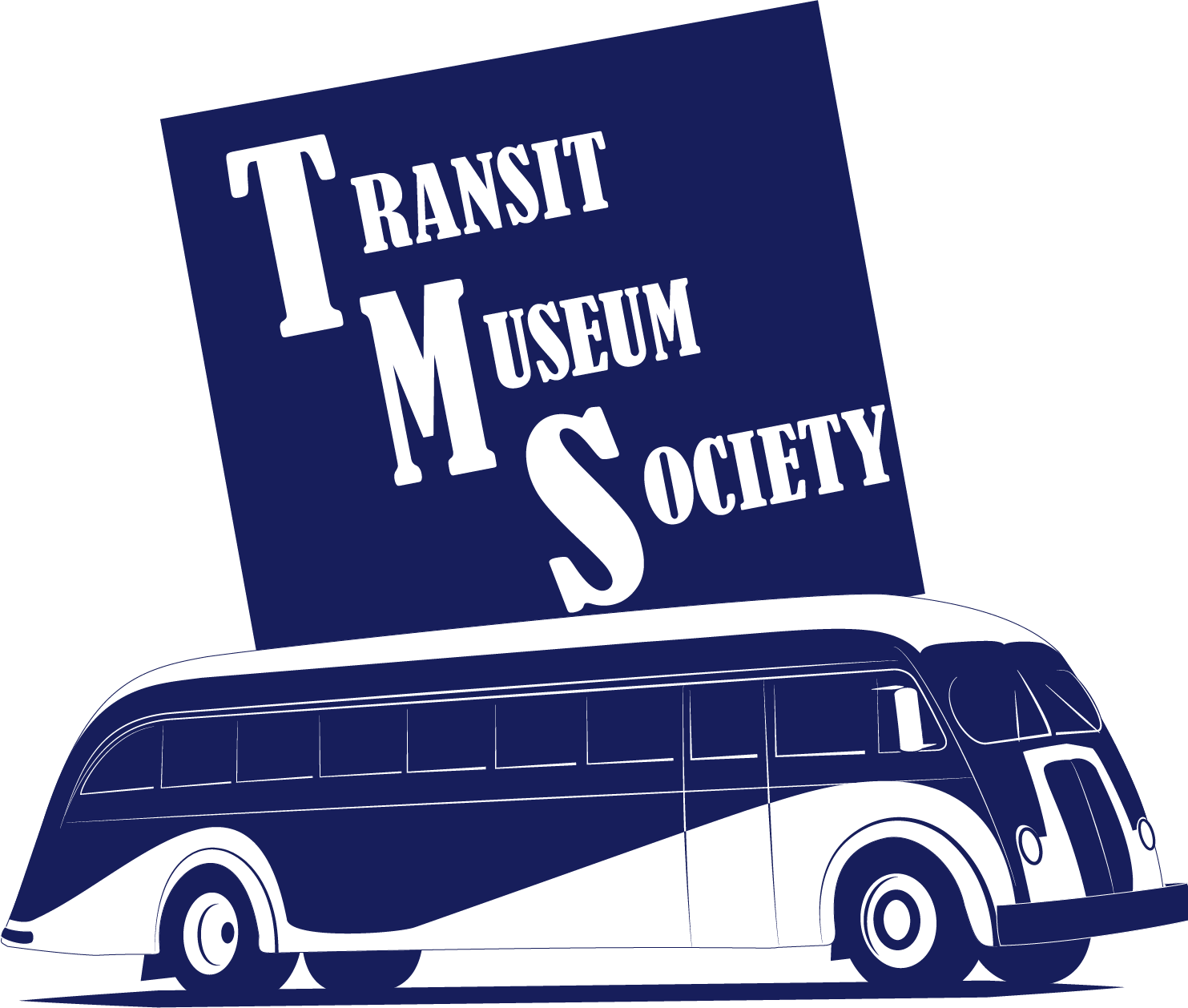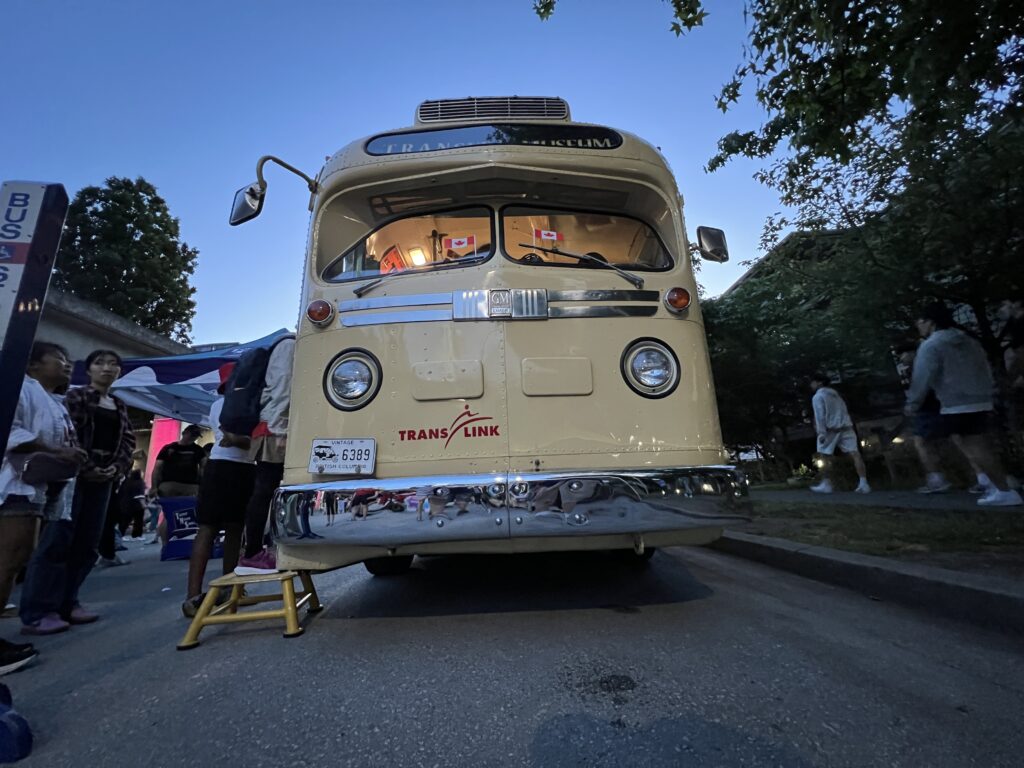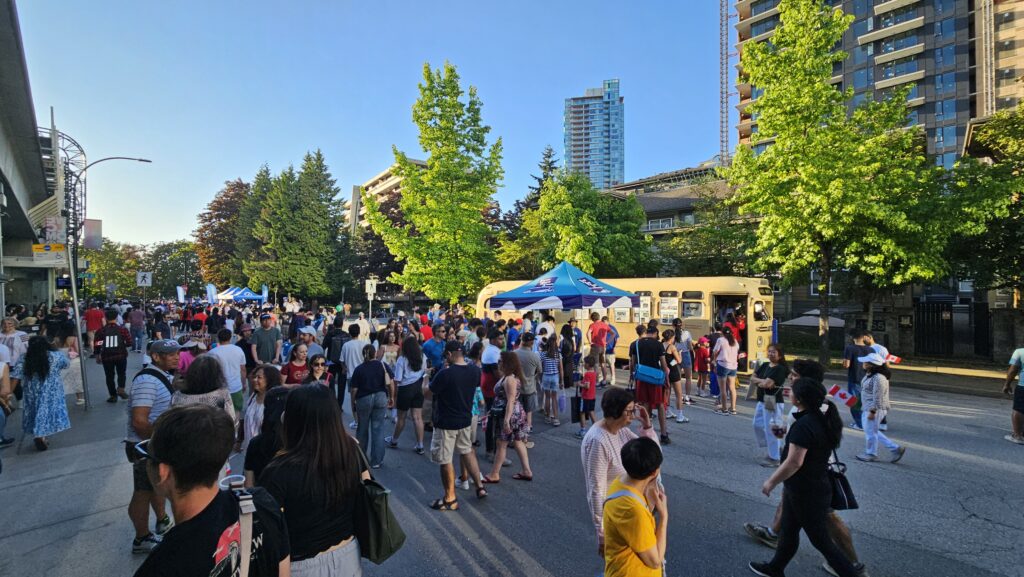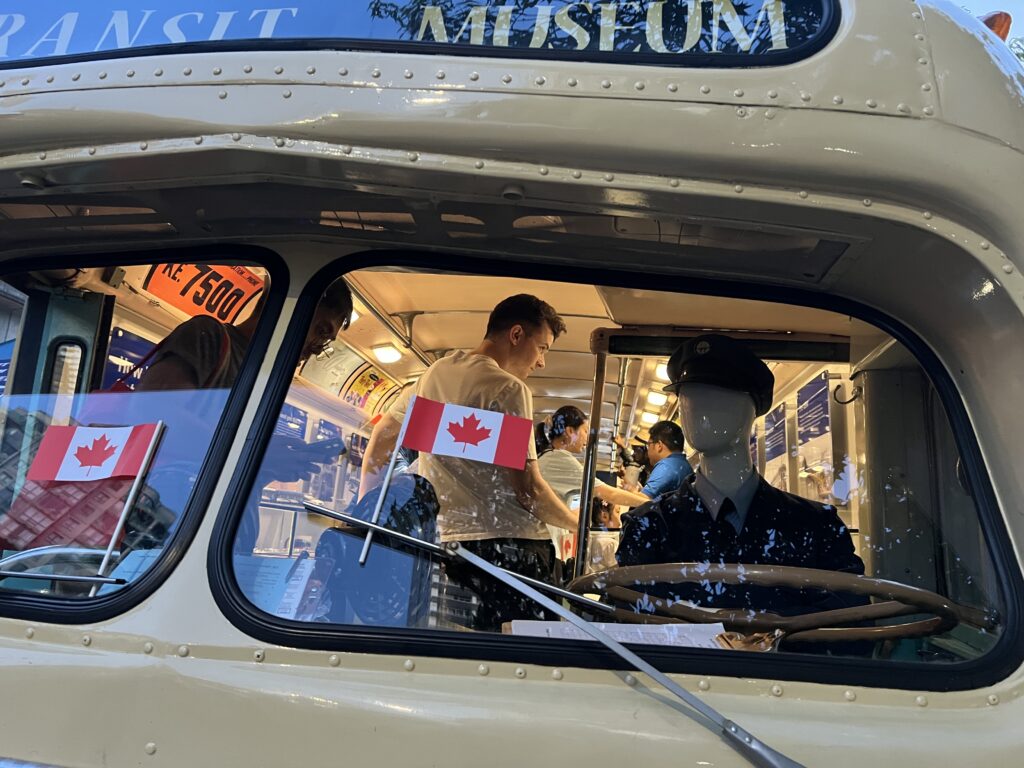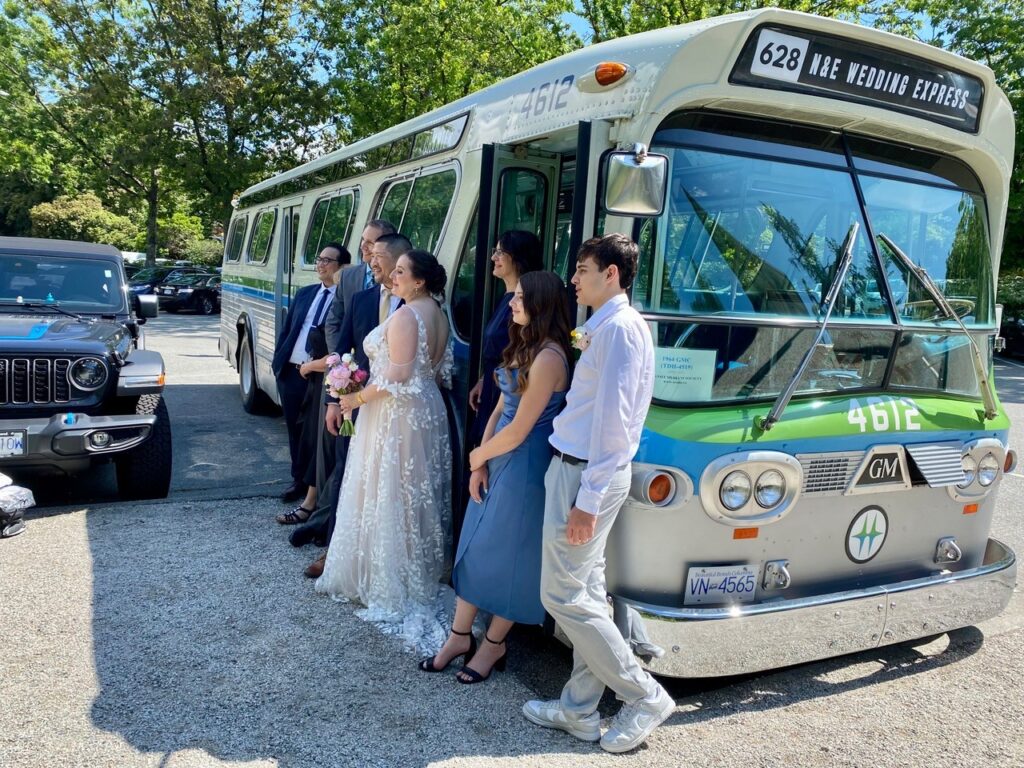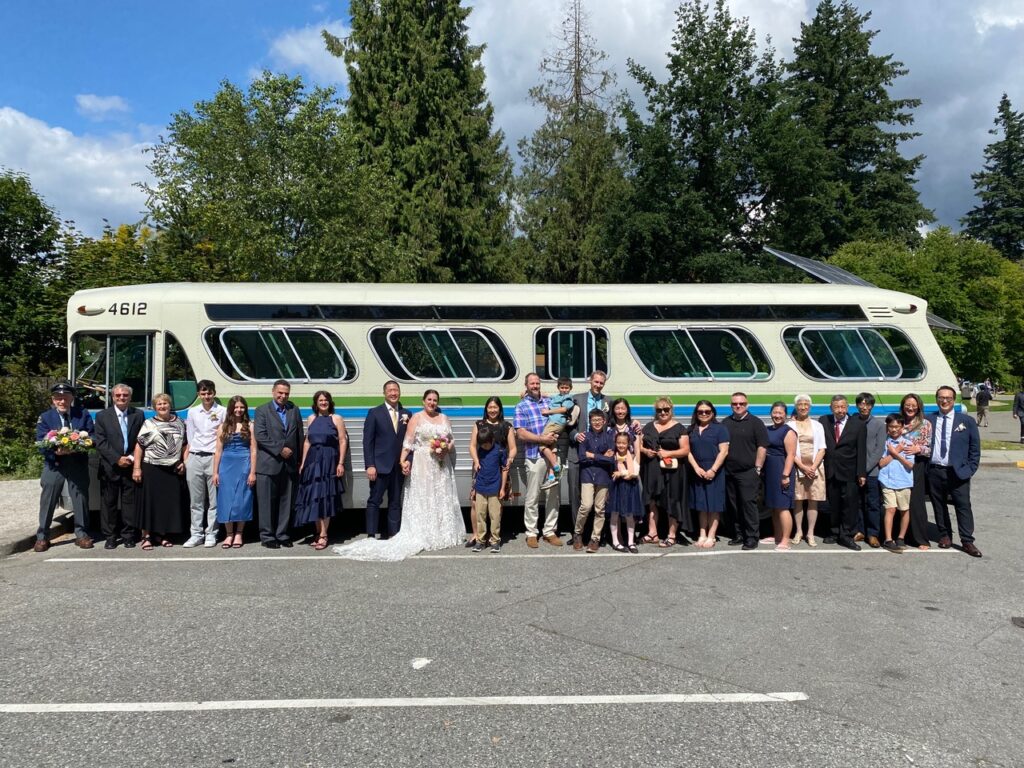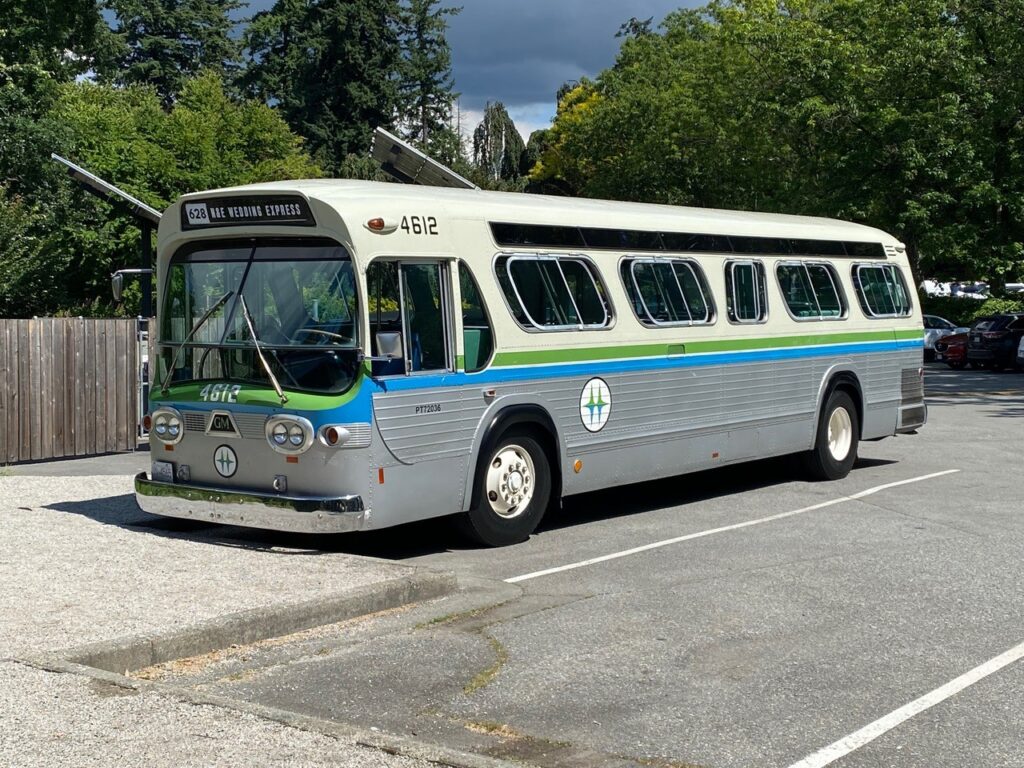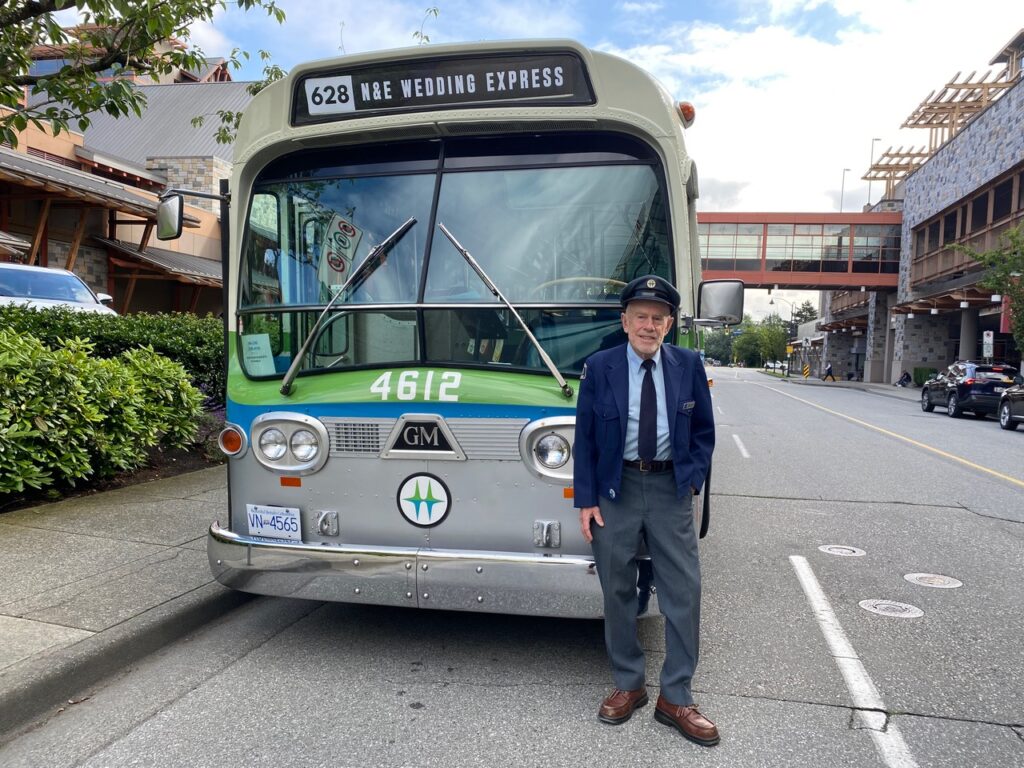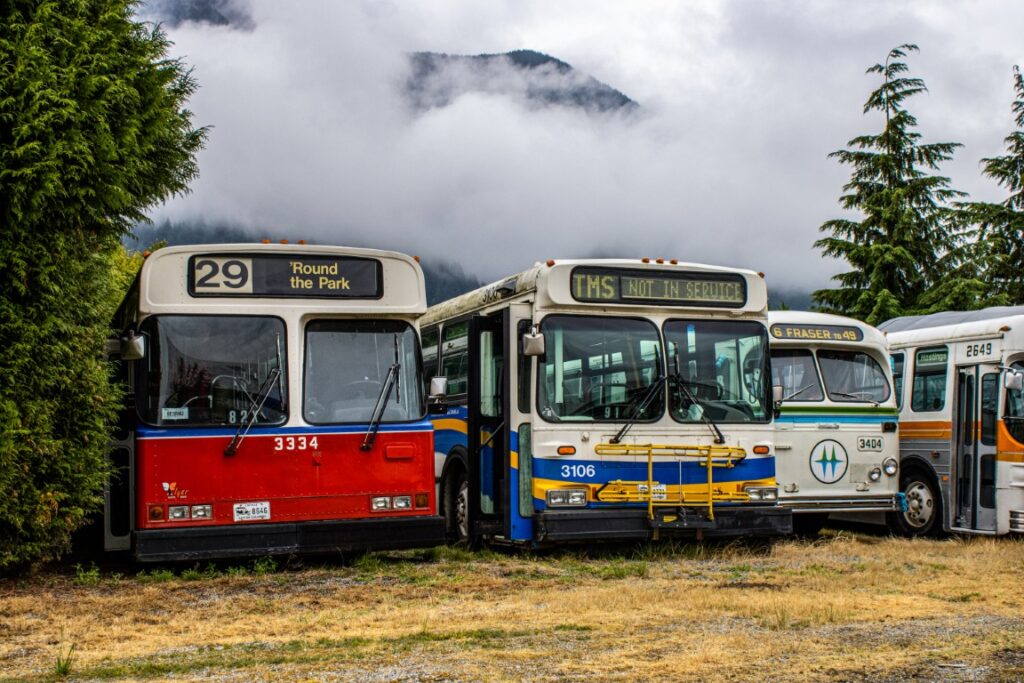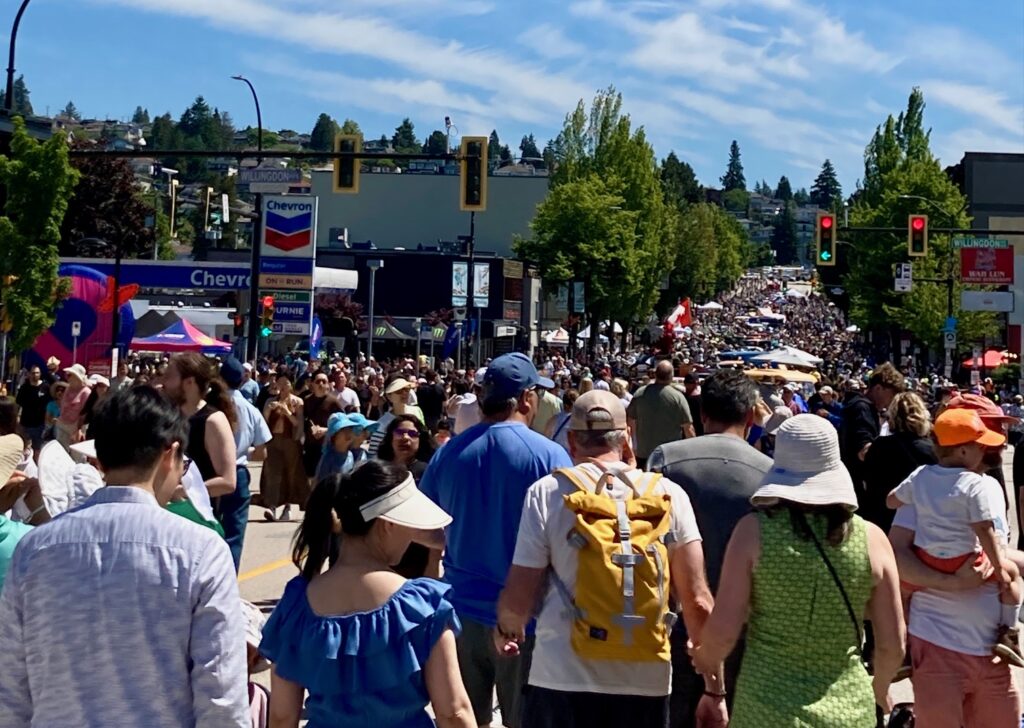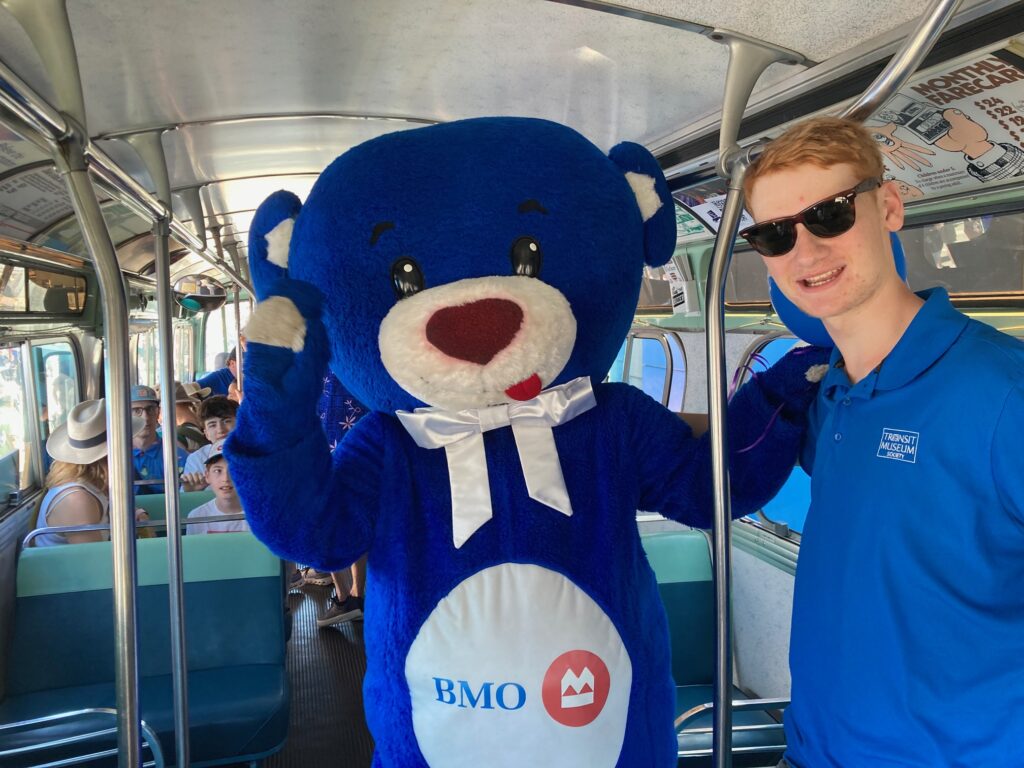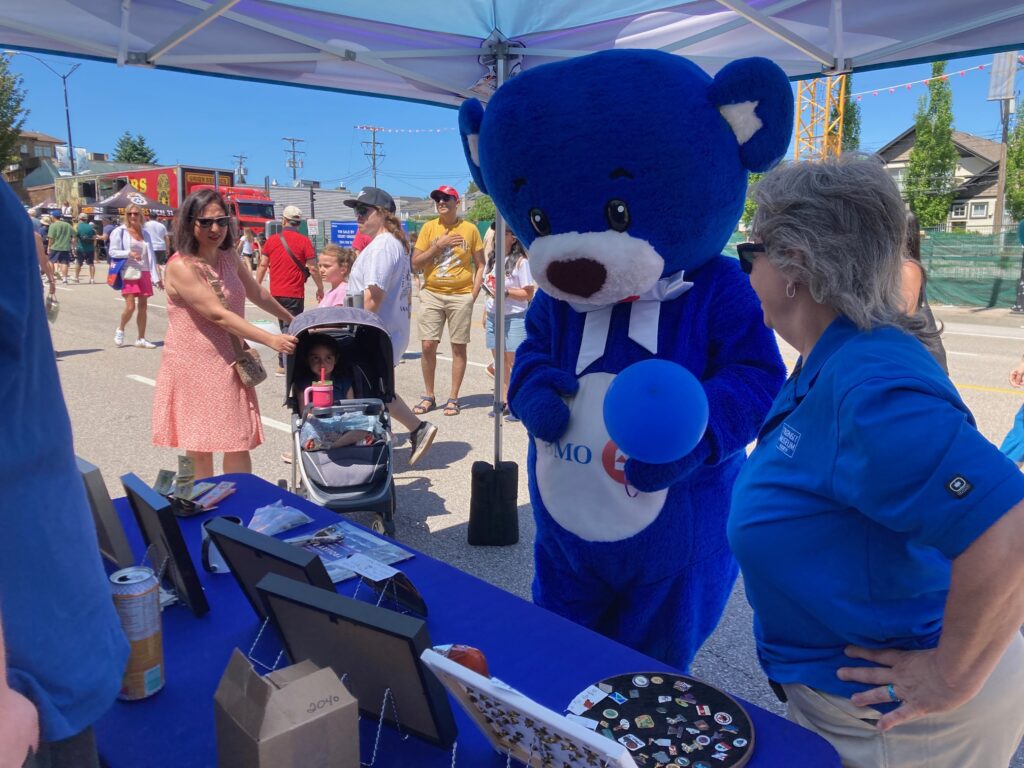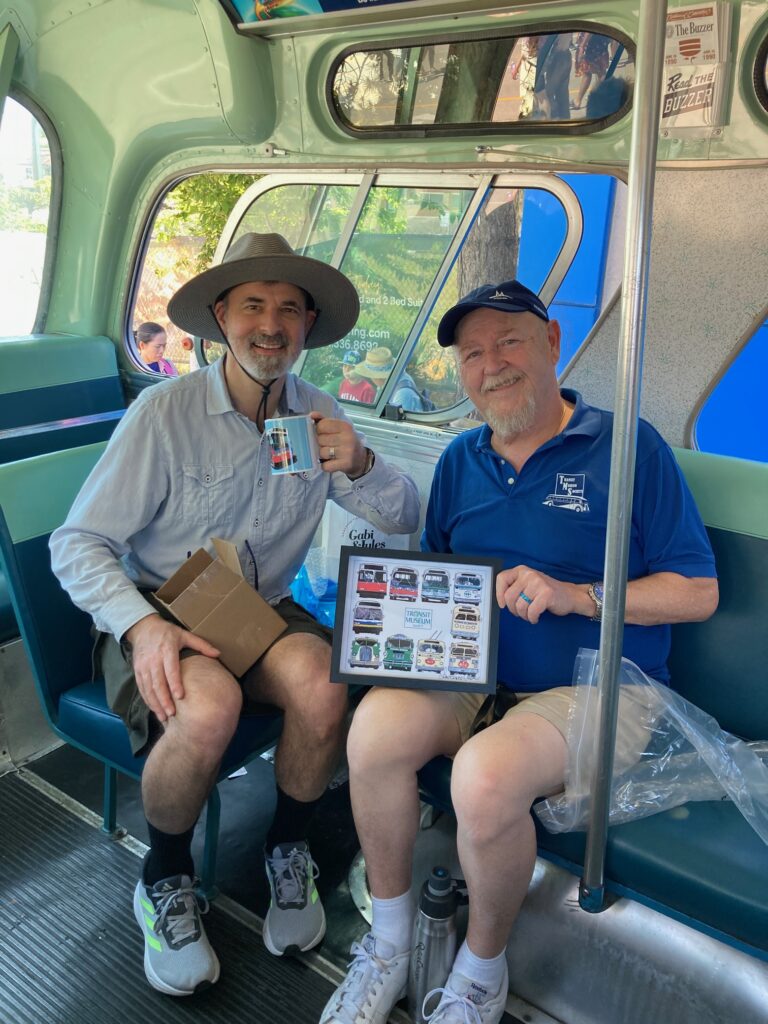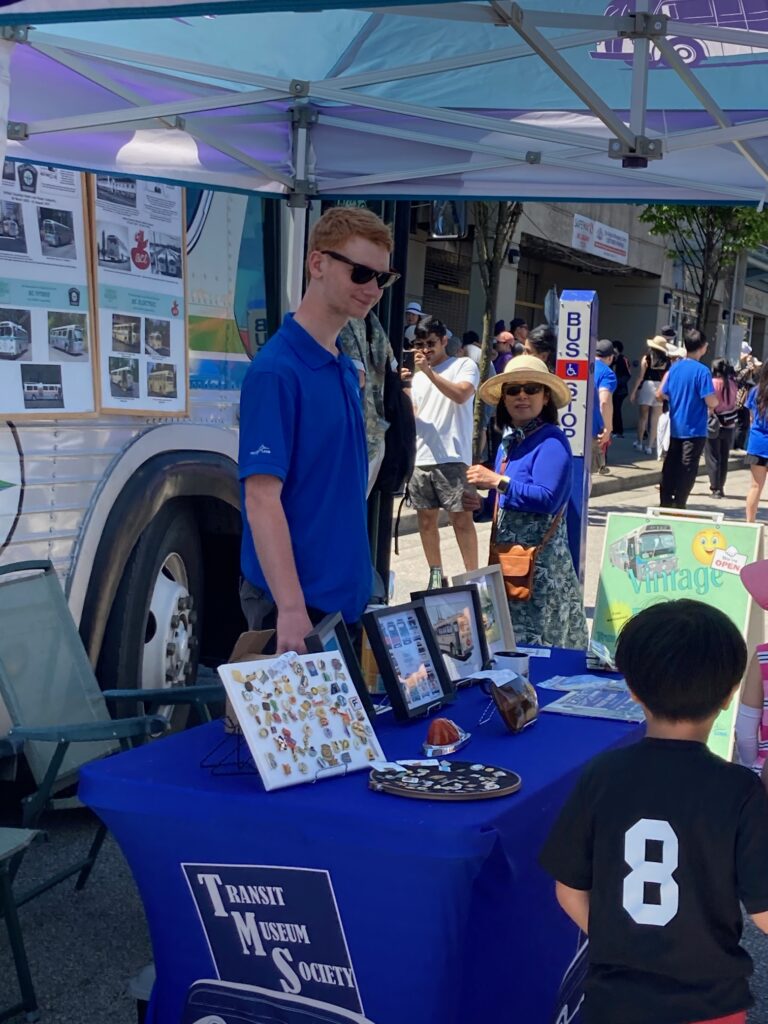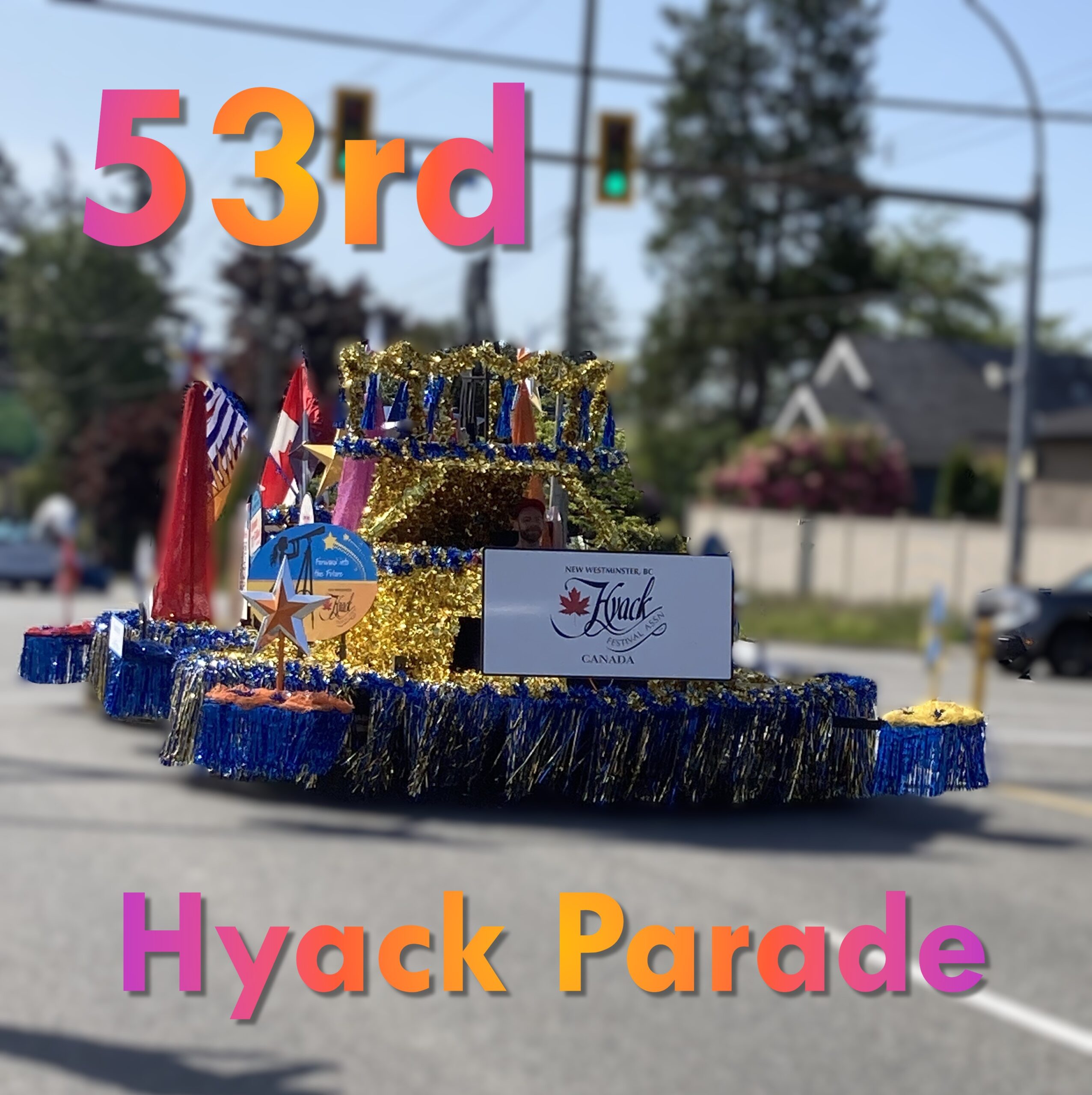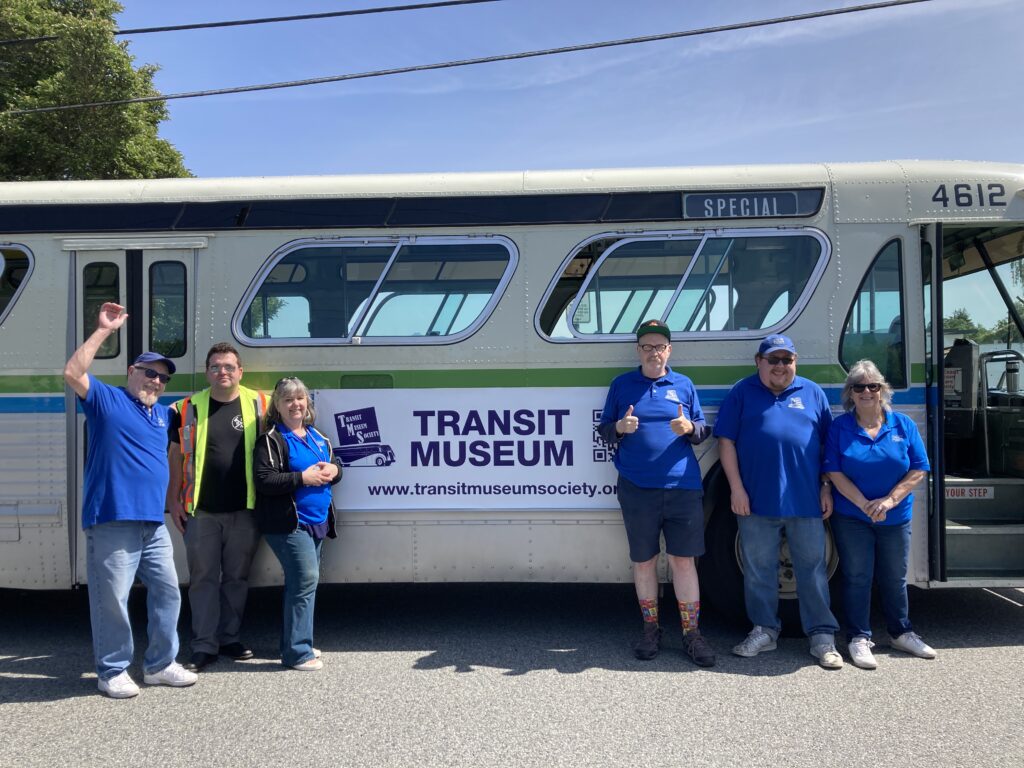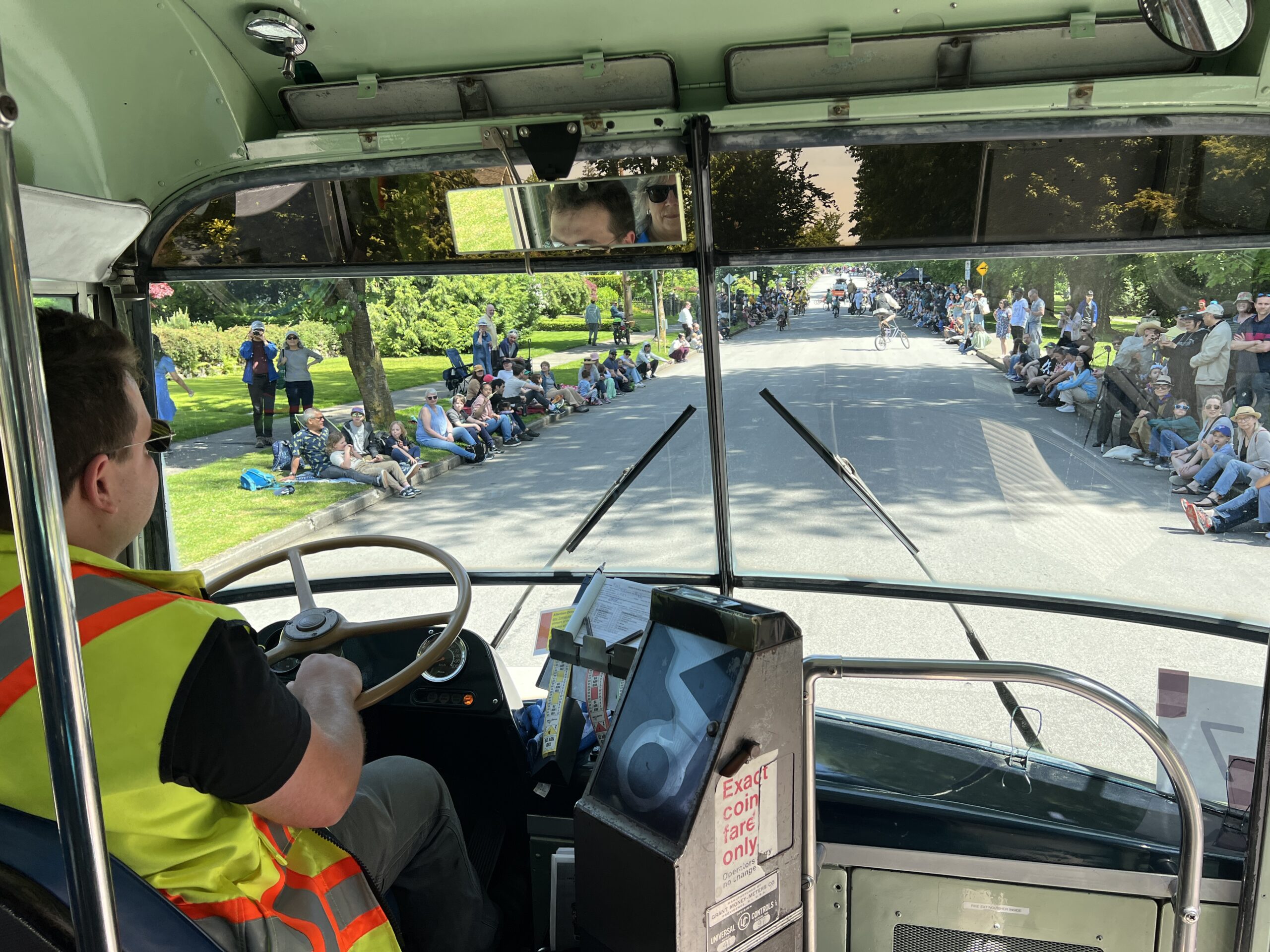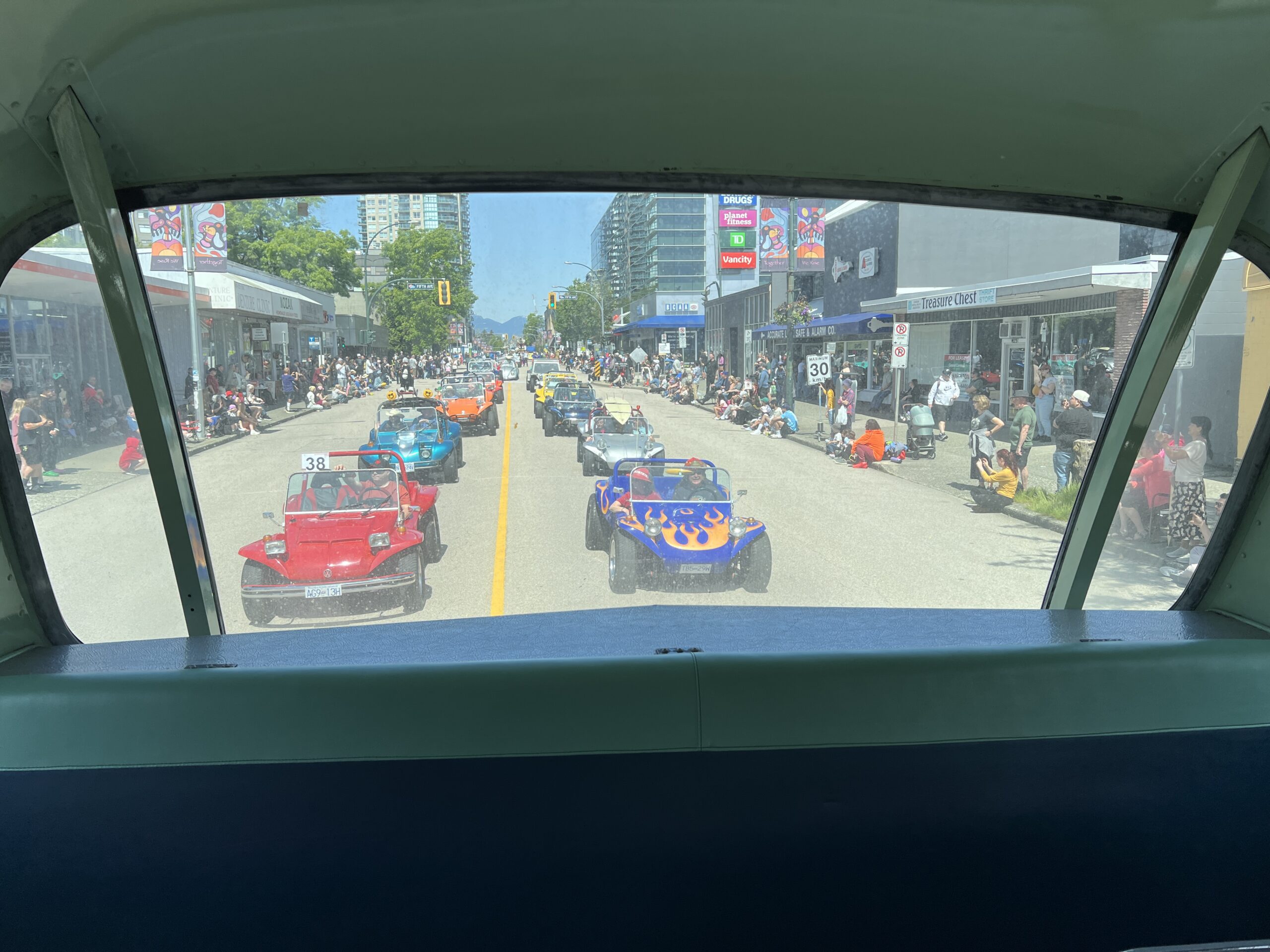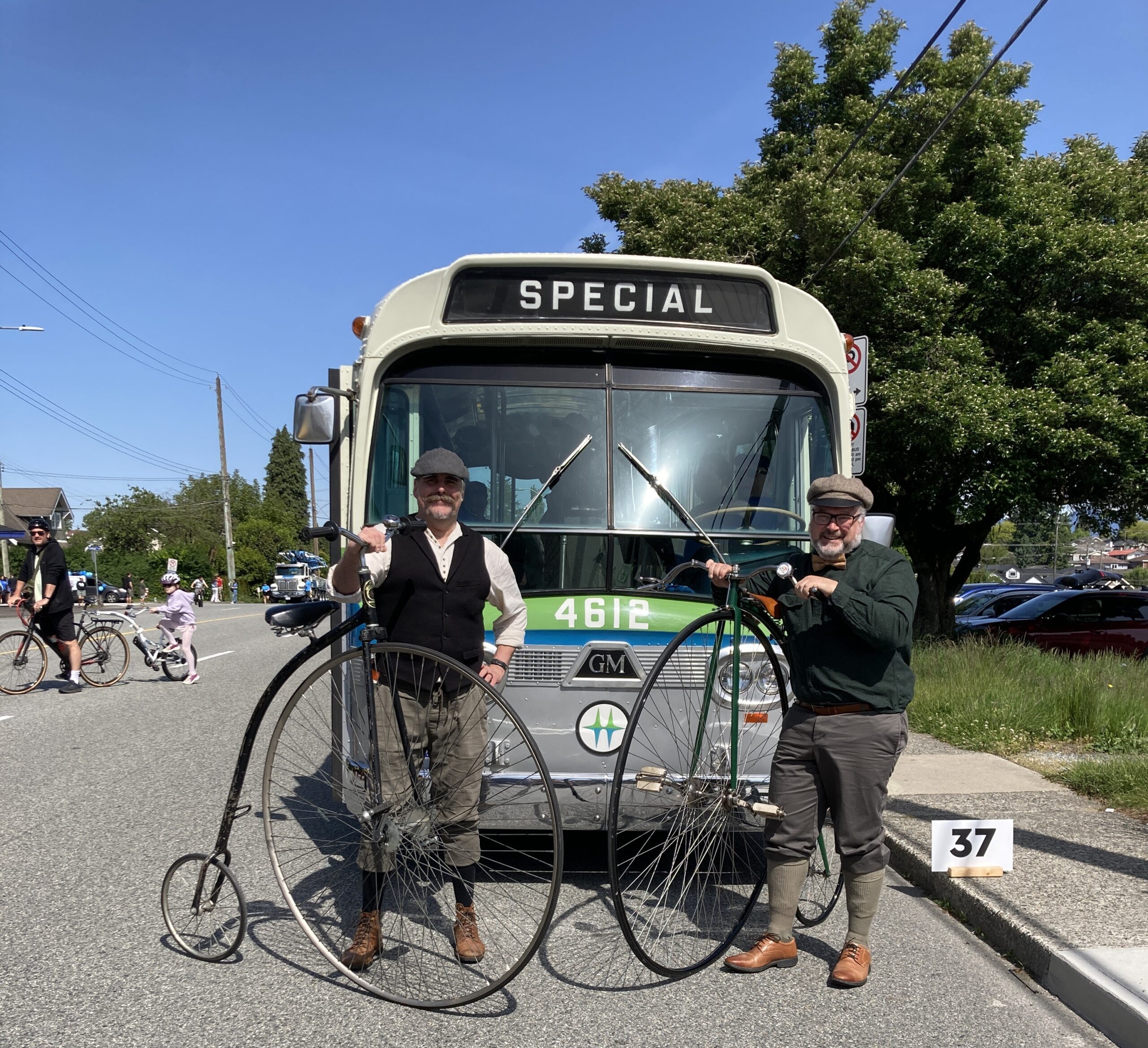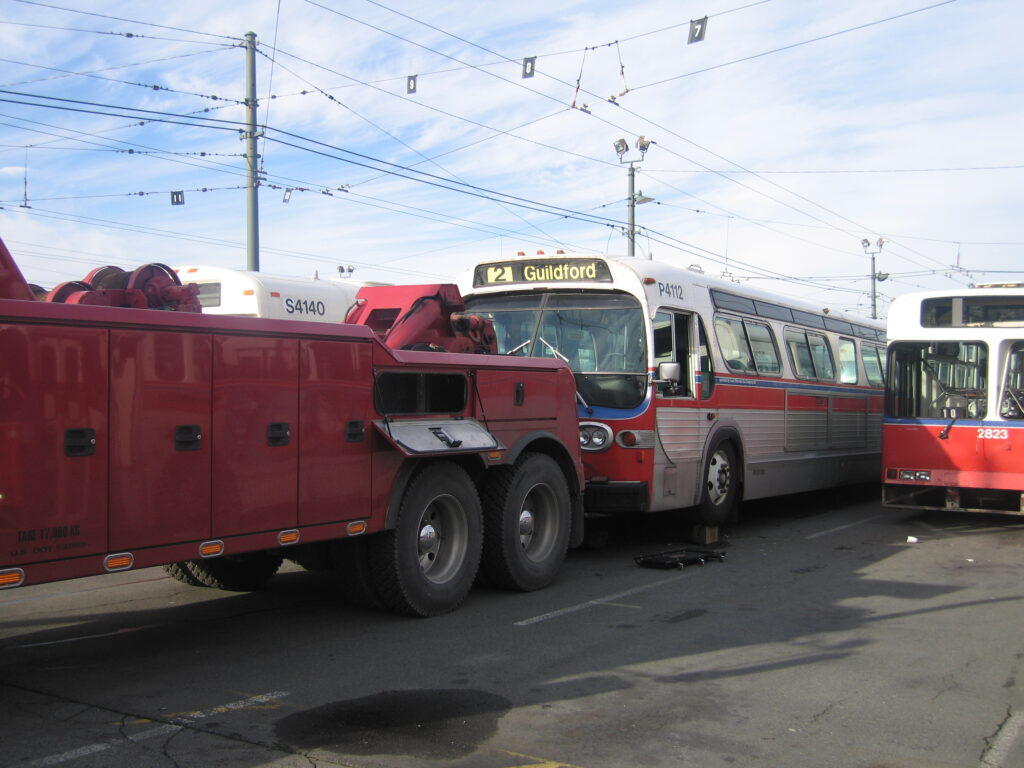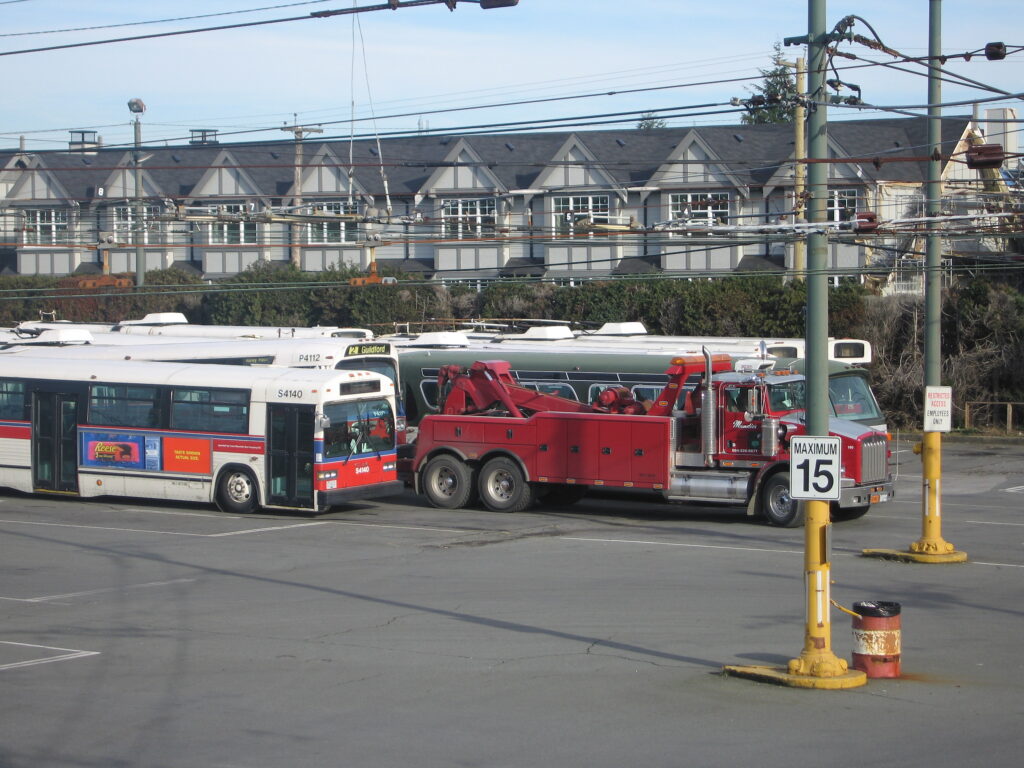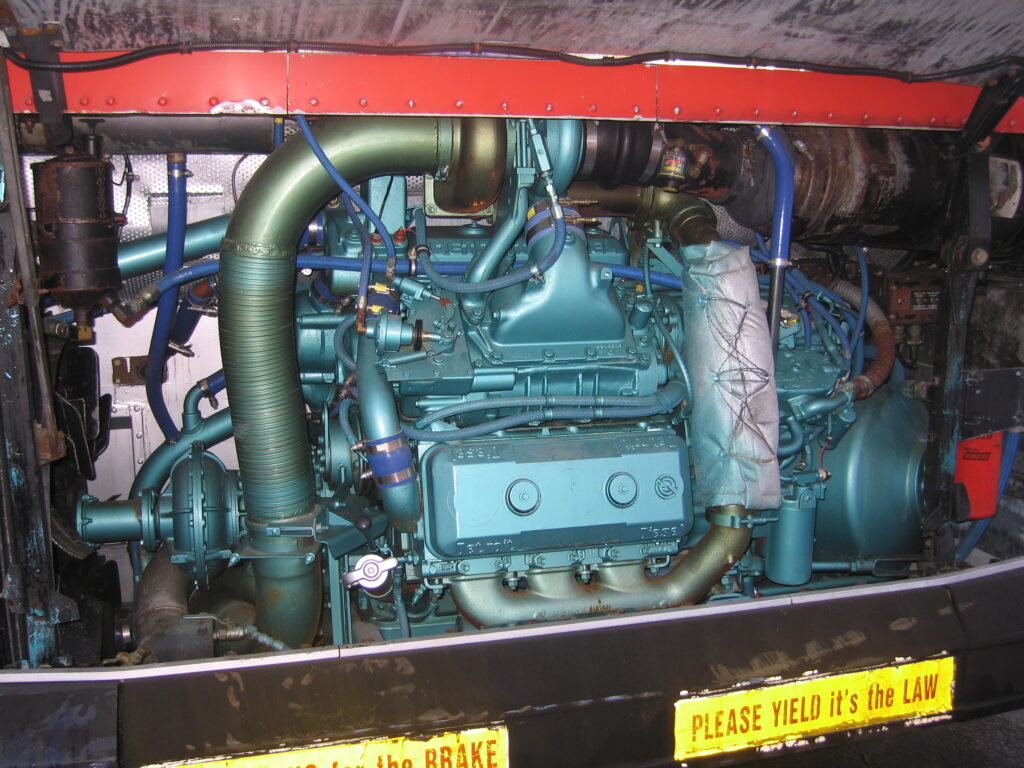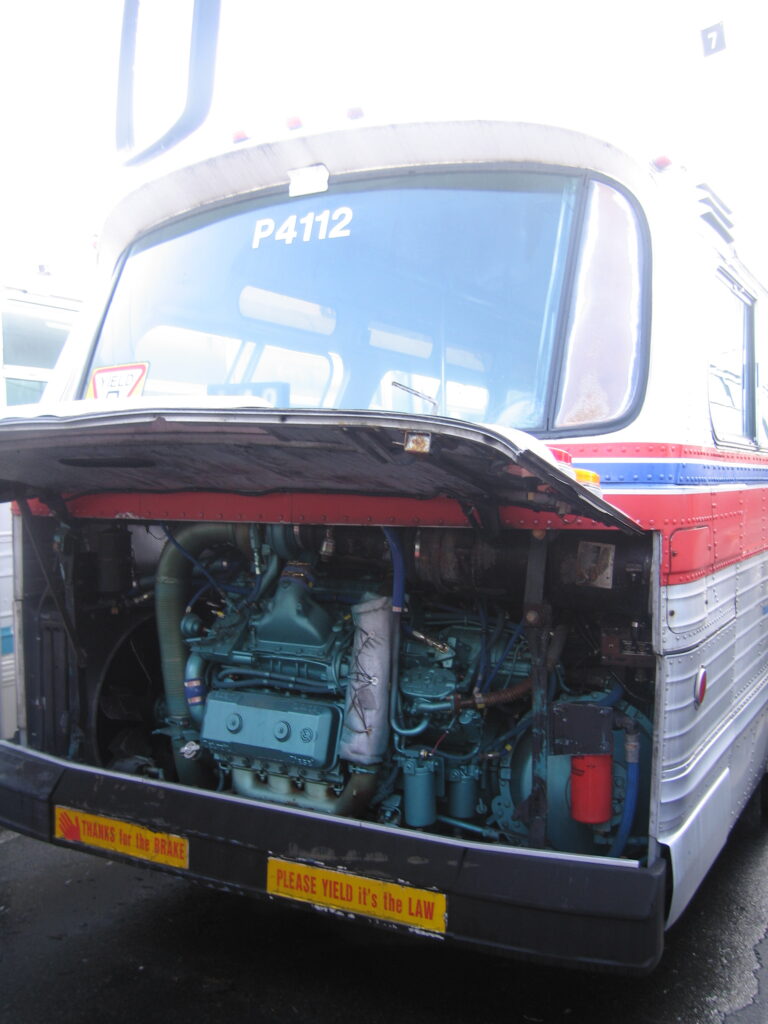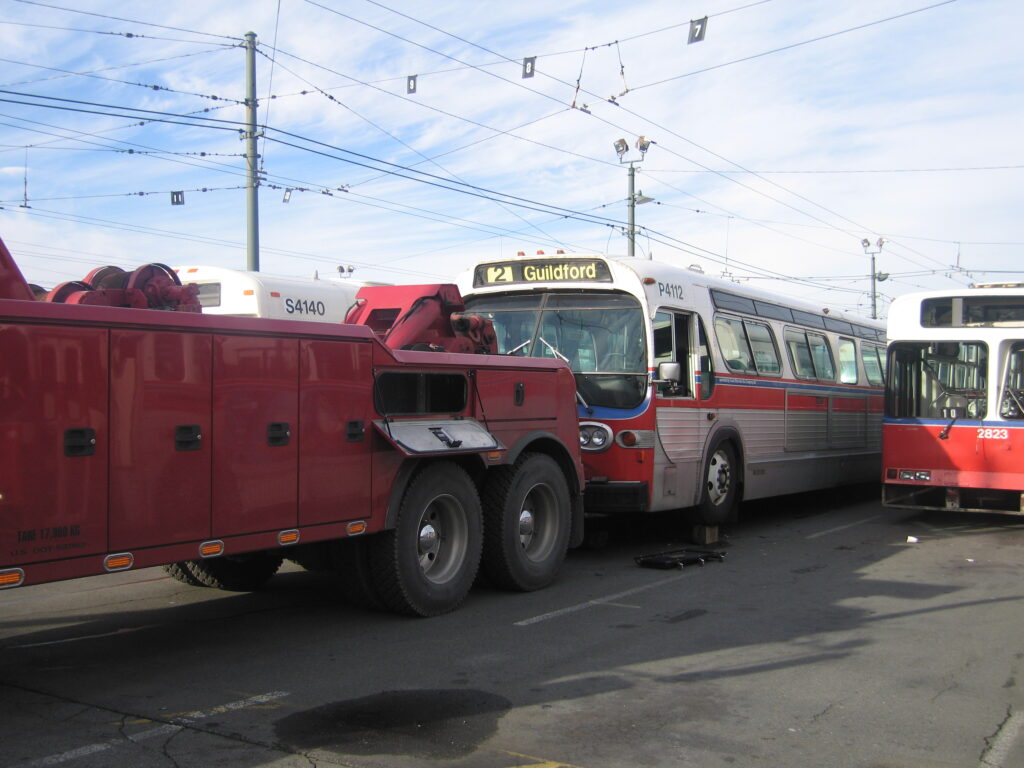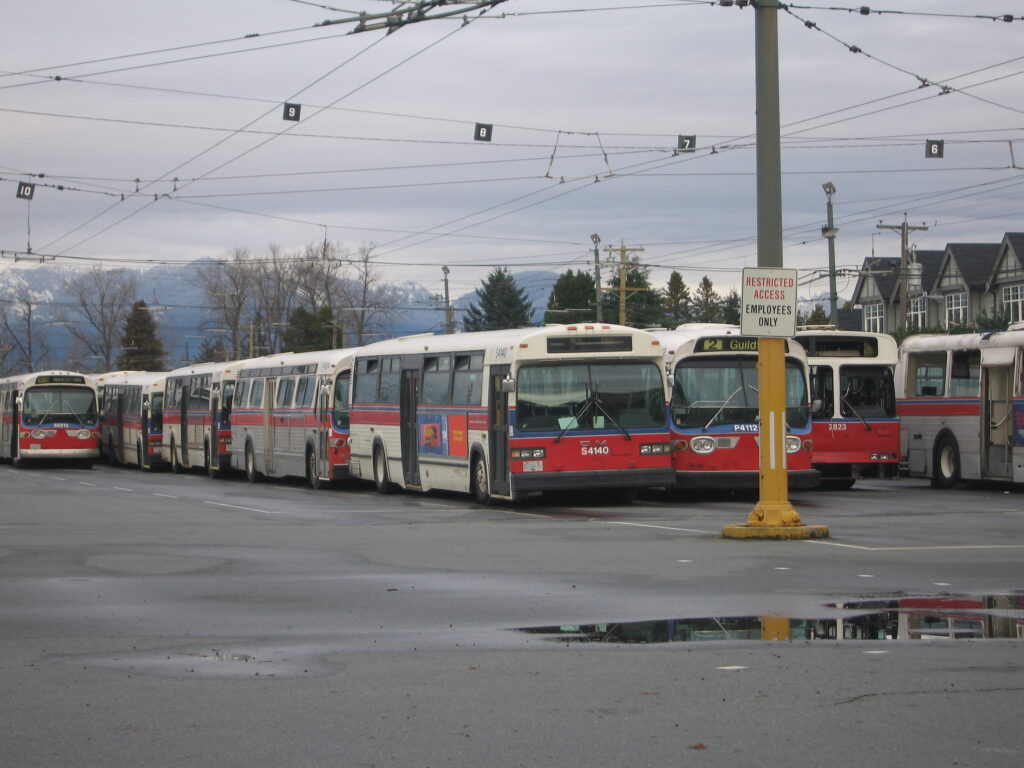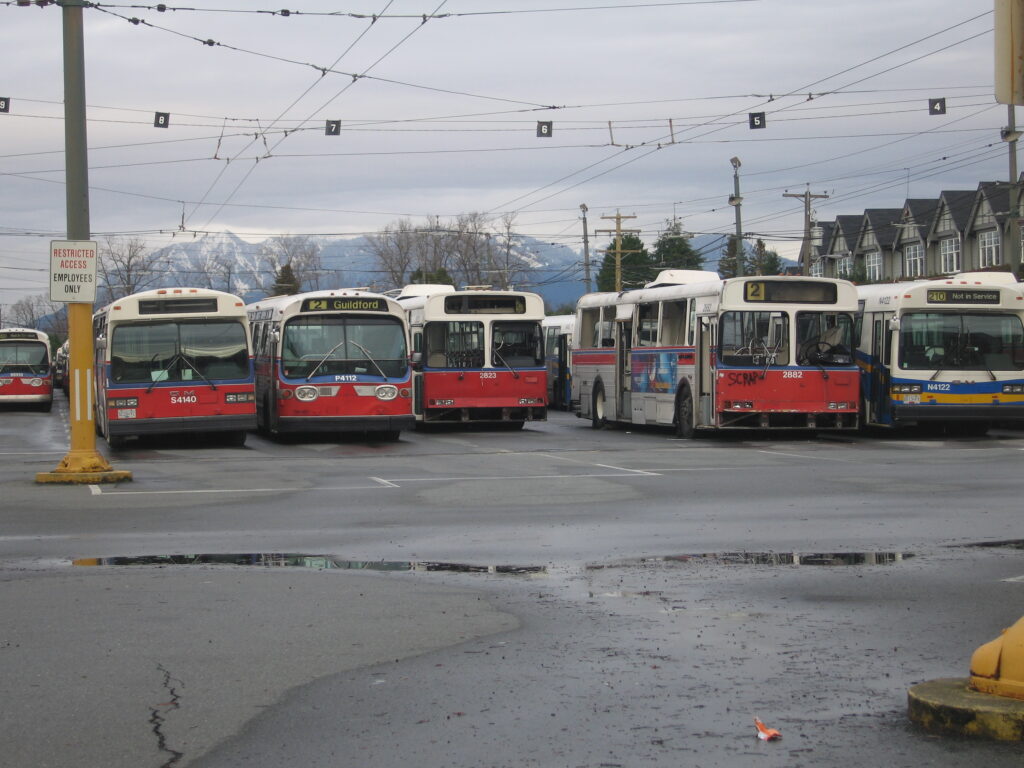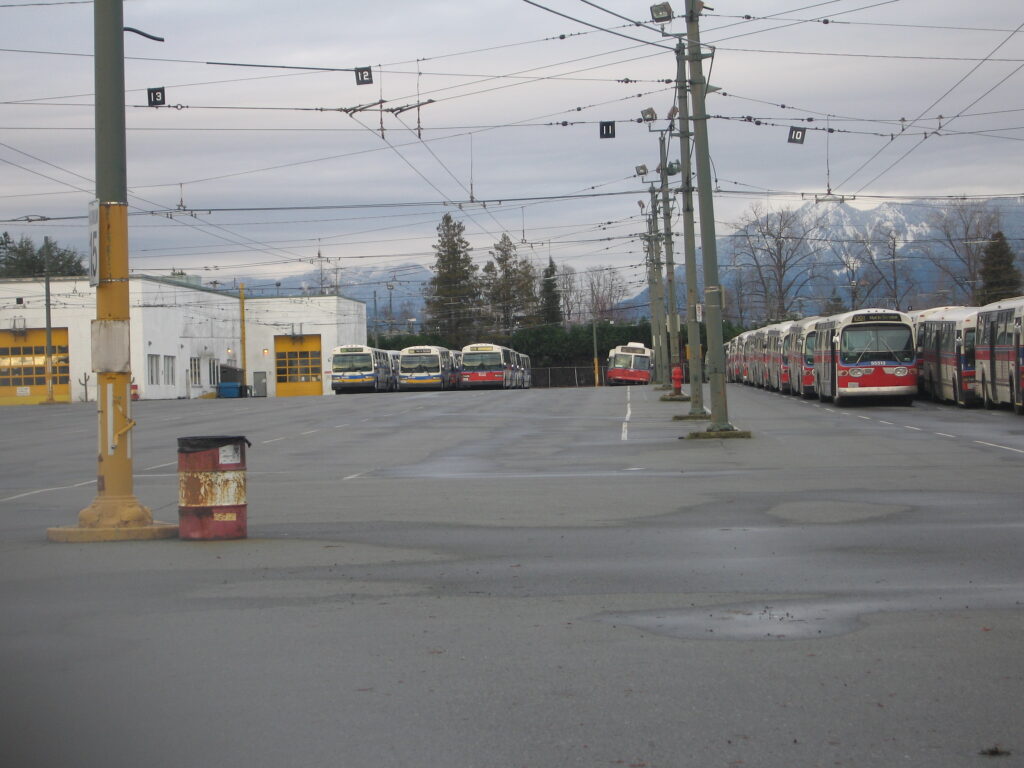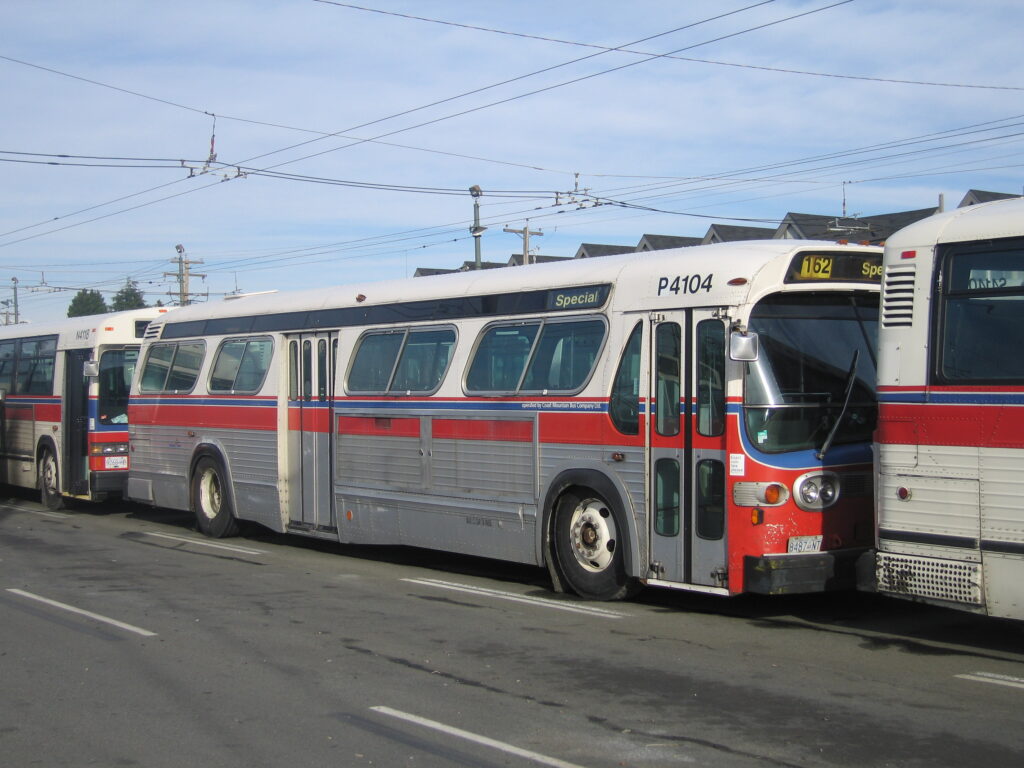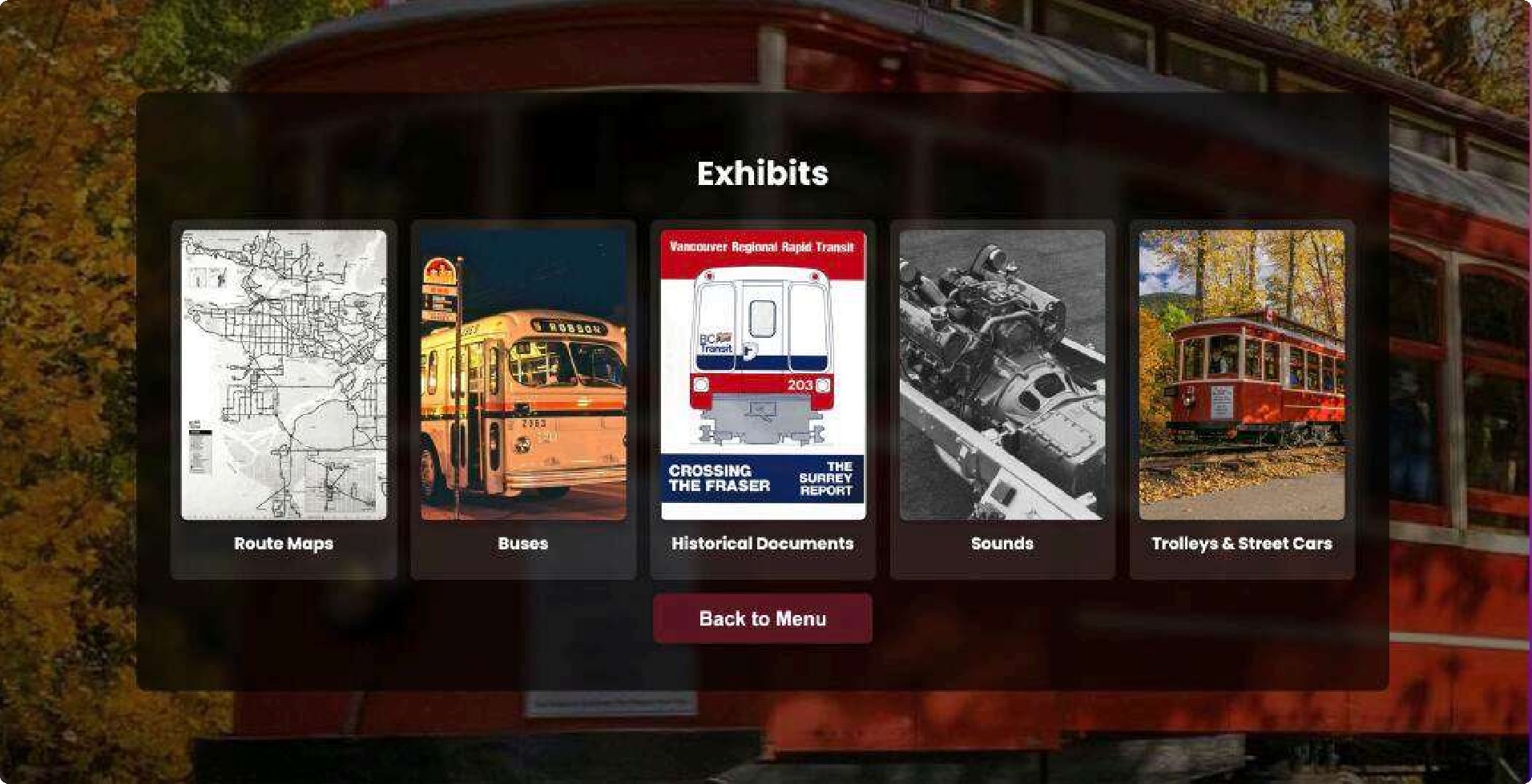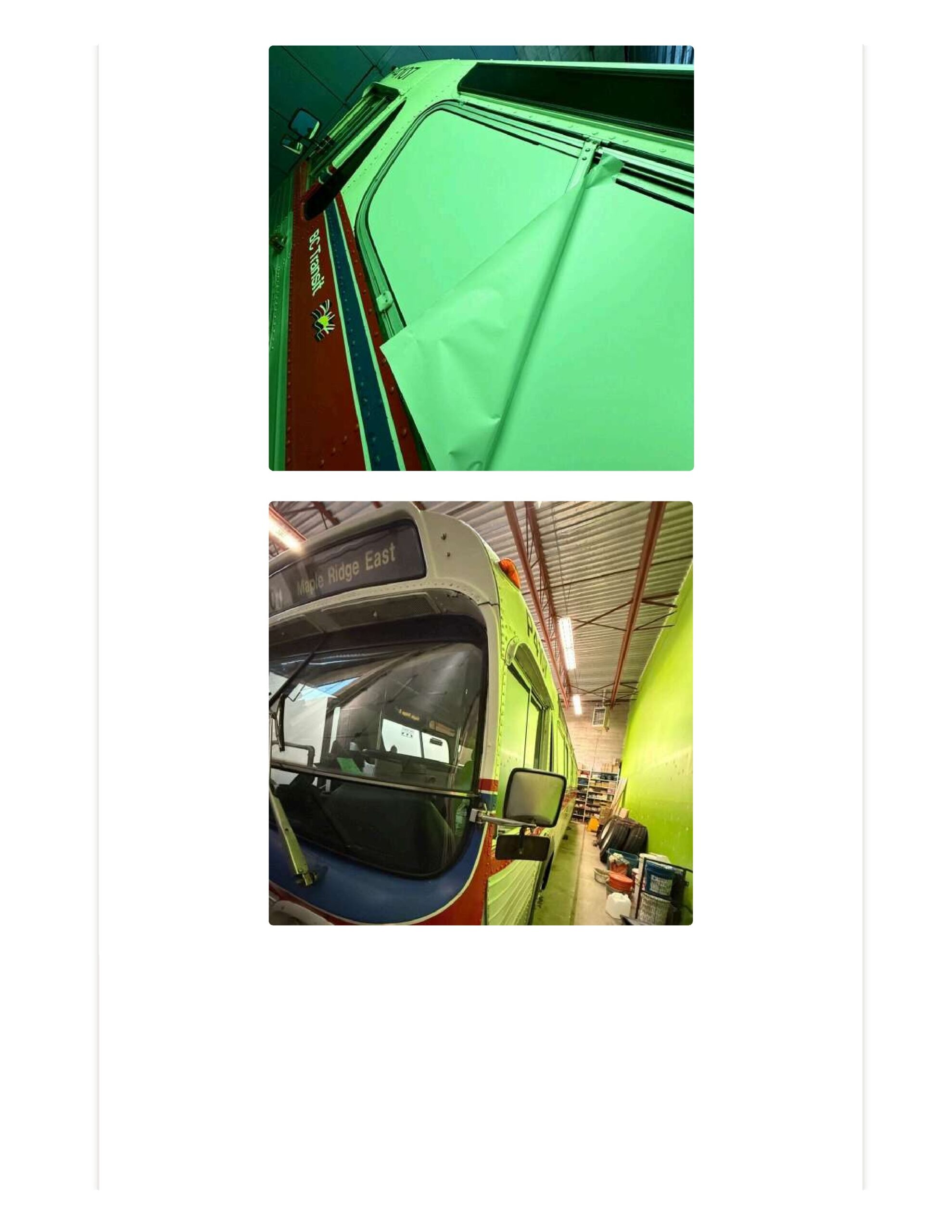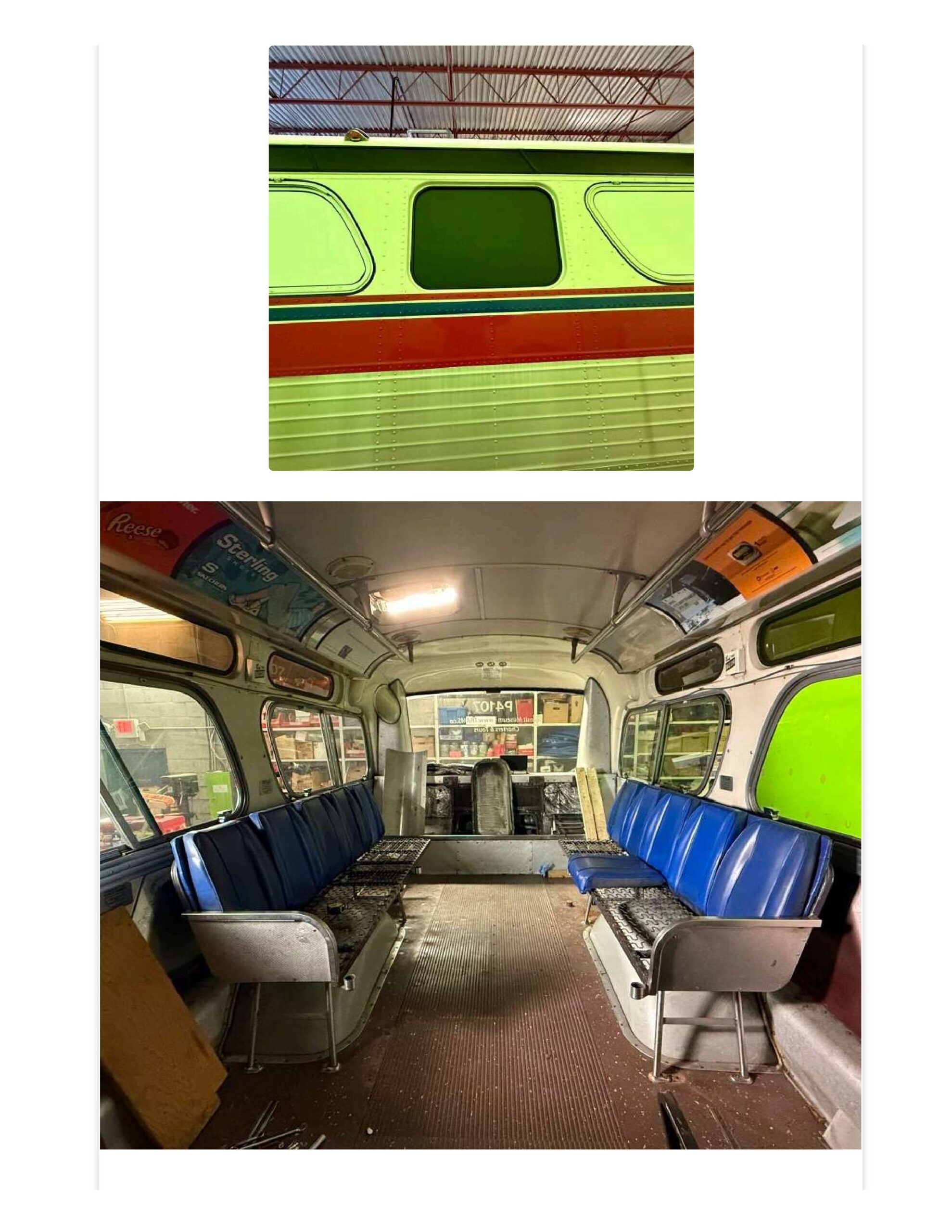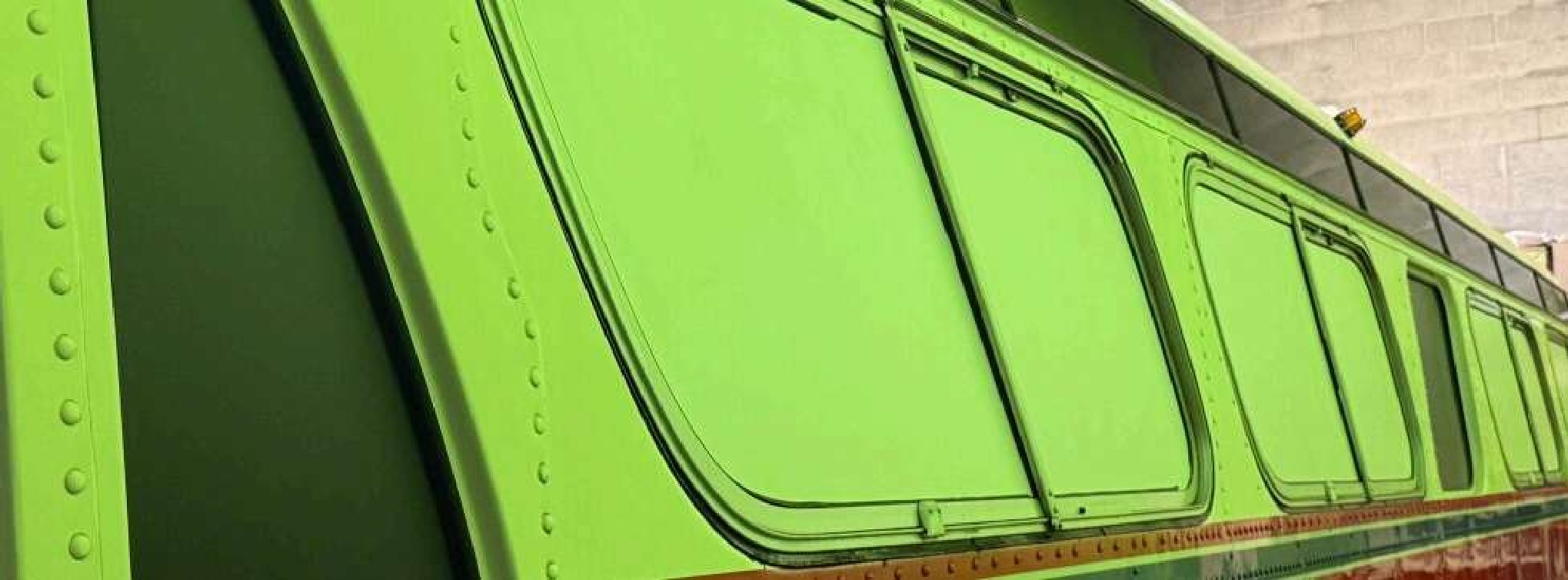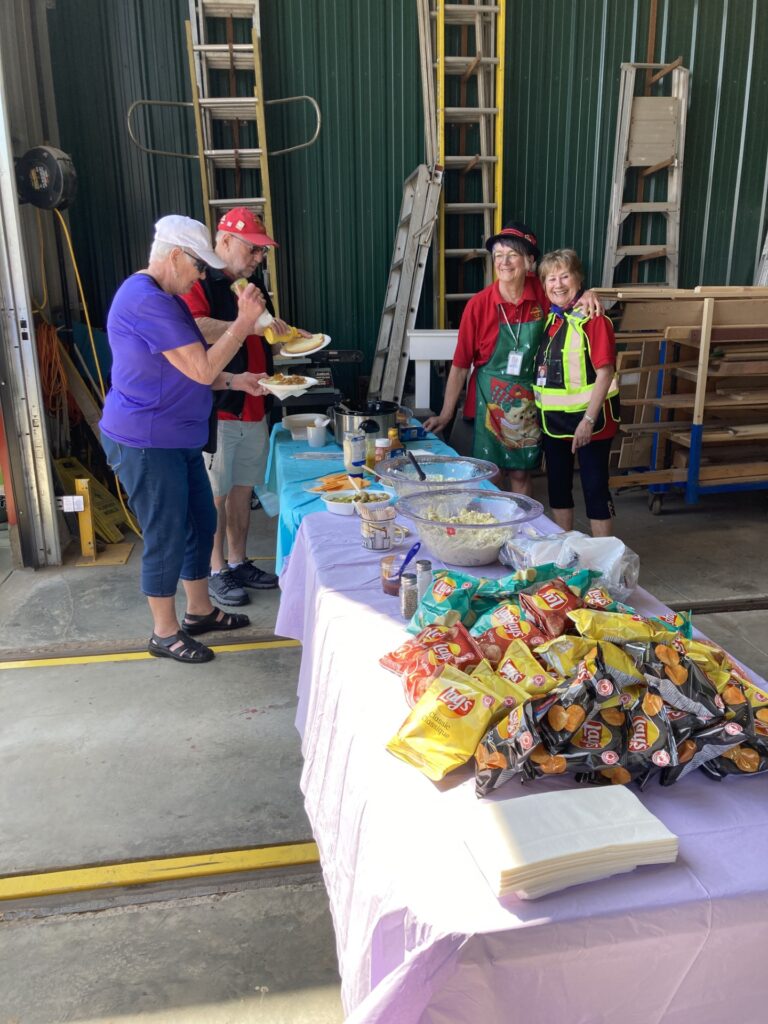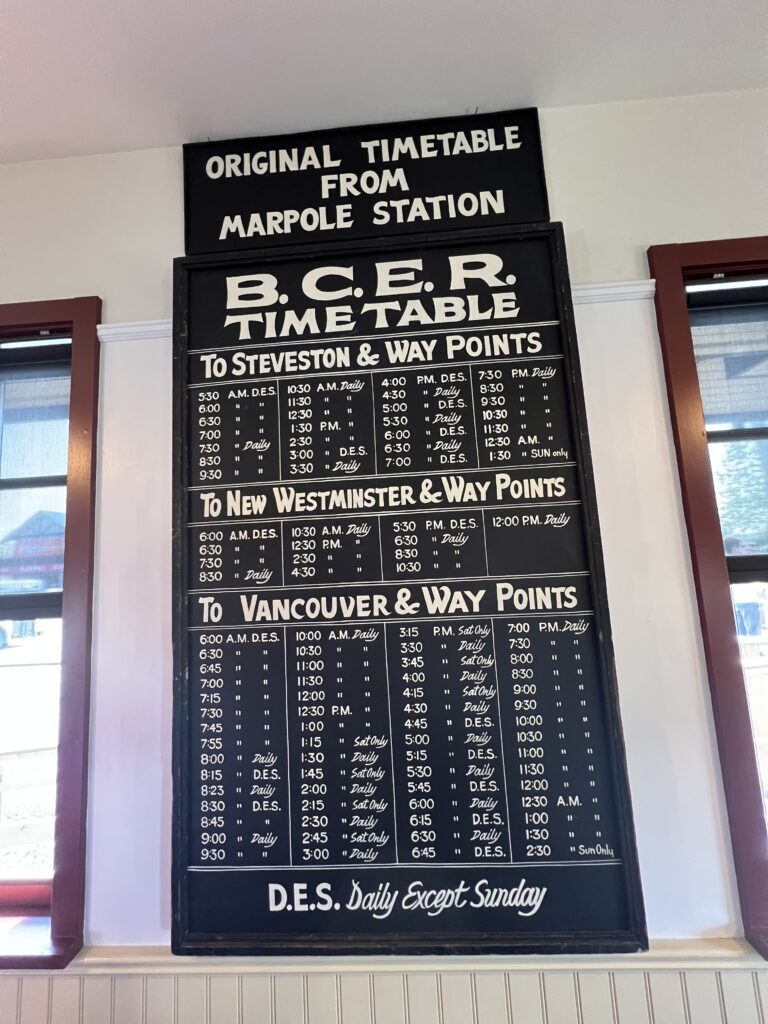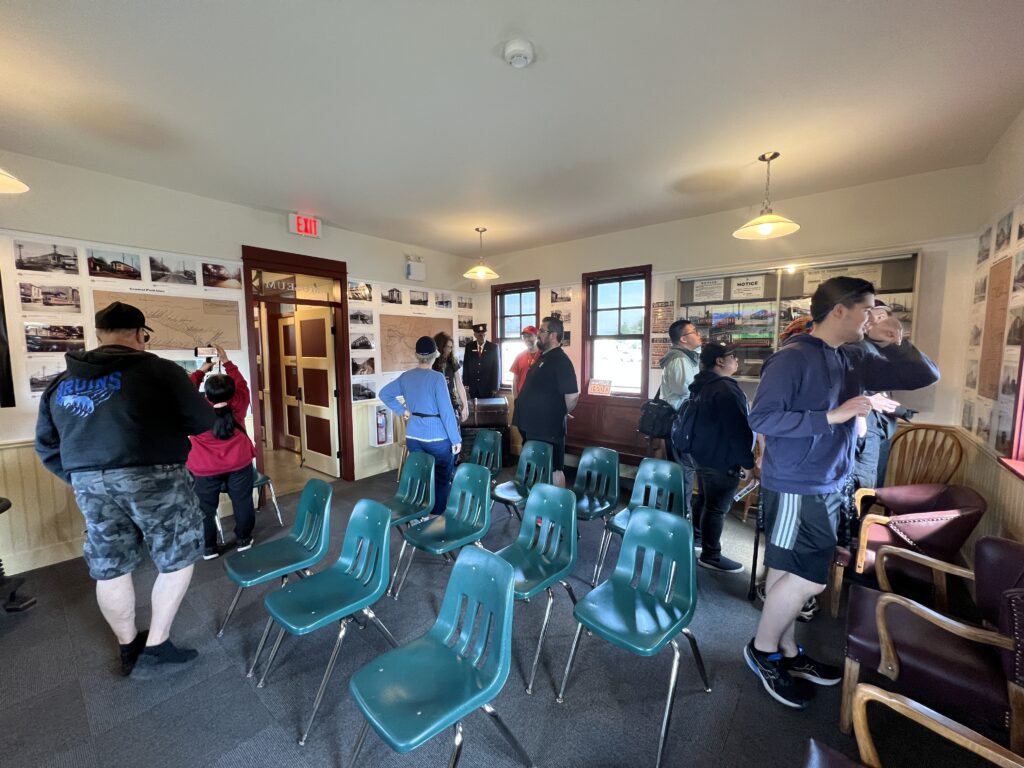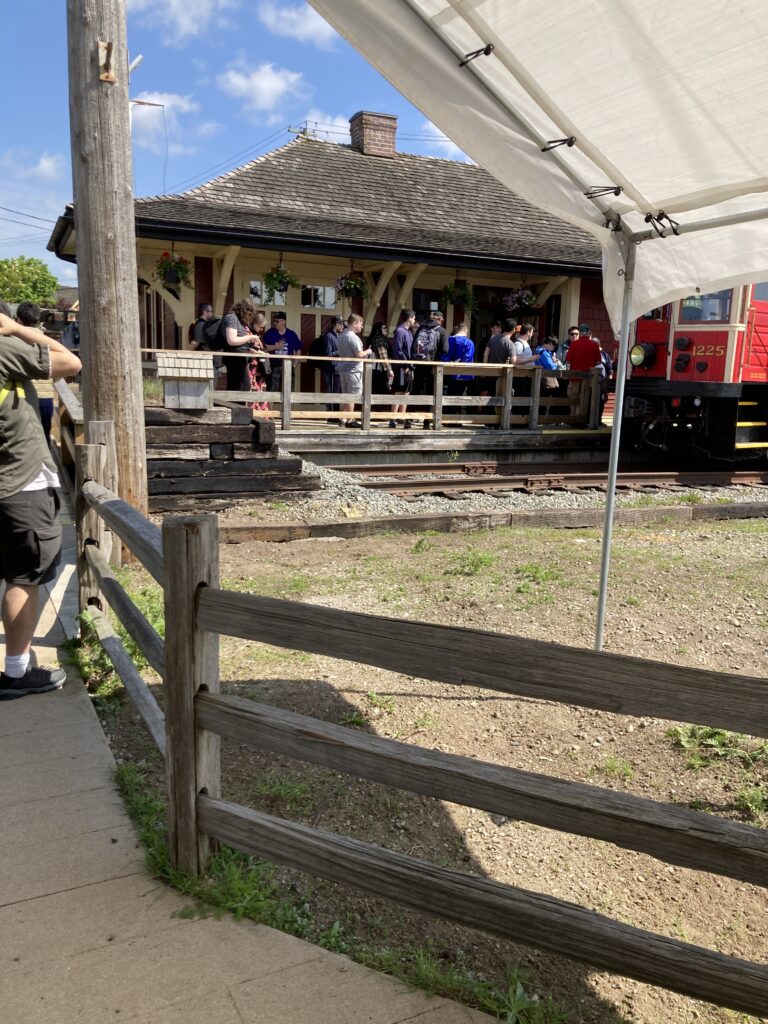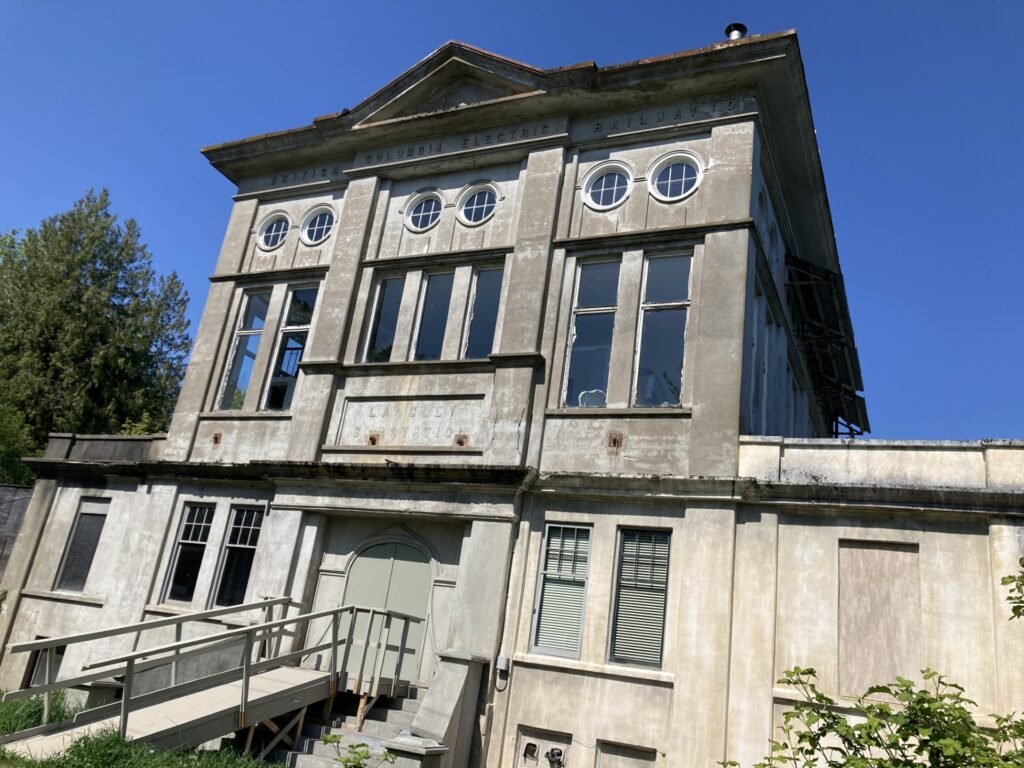
It may look strange, but there’s a story behind our acquisition of the former S5509, a 1976 GMC T6H4523N coach.
This coach has been converted to a communications hub and command centre for volunteer radio operators and emergency social services volunteers in the City of Vancouver. The group is known as VECTOR — Vancouver Emergency Community Telecommunications Organization. This bus goes to major special events as volunteers provide communications for the safety of participants. The bus also serves at emergencies such as apartment fires or evacuation scenes. It is deployable as an alternate communications net control or site command for the City if needed in a disaster.
It’s transit history: Originally Kensington Transit Centre 5631 in 1976 to STC 7507.To Oakridge Transit Centre 3515, then to BTC as 5561 in March or April, 1986. 7507 was first bus repainted into BC Transit red/white/blue/black; VS2-6 trans., HELP bumper installed after accident; Renumbered into permanent series, Winter, 1996; to STC Fall/96(JB). 5509 was one of the oldest coaches fitted with a new workstation (including power steering).
5509’s future role with TMS is unclear. It could be used as a parts bus, though being eight years younger than 4612, there will be several differences in specification. Another possibility is a museum bus (instead of 4107), or some other form of community engagement vehicle. Our mechanical team will access the condition of the coach and make recommendations to the Board.
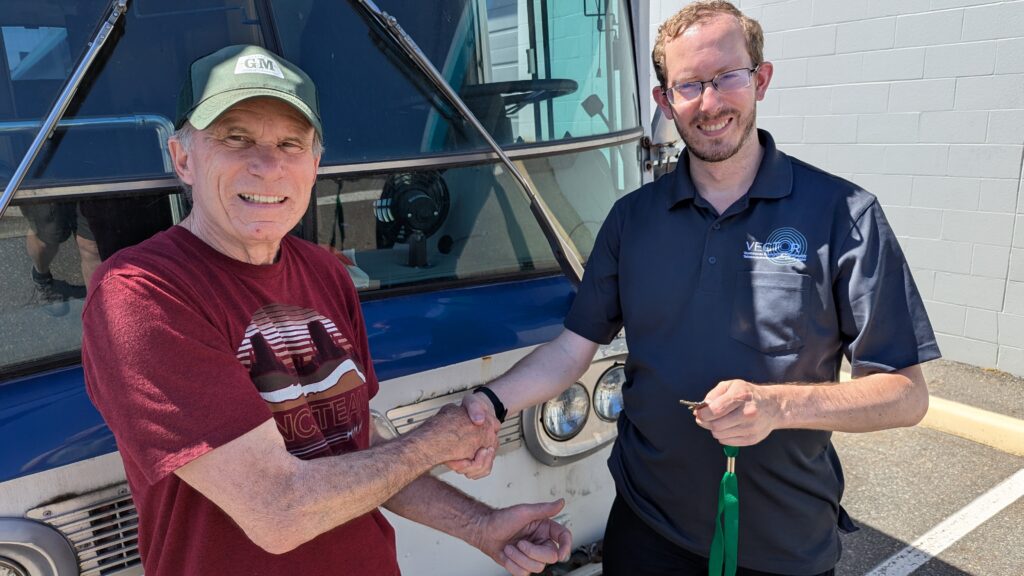
TMS President Bryan Larrabee receives the keys for 5509 from VECTOR President, Darryl Pogue. Yes, we said keys — for the front door and various cabinets inside!

In the Fall, 2010 edition of TRAMLines, Bryan Larrabee who helped guide the project to acquire and convert 5509, wrote of his experiences. You can view the article here.
